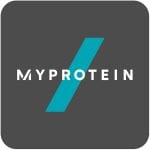
It’s no secret that much of the world is struggling with cardiovascular disease, diabetes, and many other chronic ailments. According to a huge number of research studies, these diseases show a direct correlation with the prevalence of obesity1. I’ve always been a firm believer that in this day and age, knowledge is power. The more you know, the more you can use that information to better yourself as an individual. This is especially applicable in the case of fat loss. Once you begin to understand your hormones and how they respond to different stimuli, you can manipulate your body to become a fat-burning machine.
Below you’ll find detailed explanations of many important hormones, as well as how you can use this information to optimize your fat loss.
Side note: the advice below is based off of the assumption that you are in a caloric deficit – that is, you are eating less calories than you are expending. This means that muscle growth is near impossible, since a prerequisite of muscle growth is to be in a caloric surplus.
Endocrinology and Metabolism
1. Insulin
The hormones insulin and glucagon are the 2 major players in the role of blood glucose regulation. Both are produced in the pancreas, and can be classified as what I like to call “seesaw” hormones. When insulin levels are high, glucagon levels are low, and vice versa. After eating a meal with a high-glycemic index rating and simple carbohydrates, your blood sugar levels increase drastically.
With so much glucose now circulating in the blood, that’s where insulin comes into play. The job of insulin is to increase the amount of GLUT4 transporters on the membranes of fat, skeletal muscle, and liver cells. These GLUT4 transporters are responsible for shuttling glucose molecules from the blood, across the cell membrane, and into the cell. Once in the cell, glucose can then be converted into glycogen by a process called “glycogenesis”. Insulin secretion promotes anabolism (or the building of tissues) in the form of muscle growth and fat storage.
Why it matters: Now that we understand that insulin is an anabolic hormone, and that it promotes both muscle growth and fat storage, this leads to a conclusion that insulin levels must be kept at a minimum for fat loss. The way you can go about this in your diet is to avoid simple, high-glycemic carbohydrates such as sugary sweets, white pasta, white rice, etc. By eating only low-glycemic, complex carbohydrates, your blood sugar levels rise very slowly in comparison. This means that much less insulin is being secreted in response to complex carbohydrate sources. And if insulin is staying low, then fat storage is minimized. A few examples of complex carbohydrates are:
? Sweet potatoes
? Brown rice
? Wheat pasta

2. Glucagon
Now keep in mind again that insulin and glucagon are “seesaw” hormones. When insulin is high, glucose is transported into the cell, and converted into glycogen (the body’s preferred form of energy storage) for later use. Glucagon, however, has the direct opposite effect on the body. When blood sugar levels are low (which occurs in fasted conditions), alpha cells in the pancreas secrete glucagon. Glucagon secretion stimulates glycogen in the cells to be converted back into glucose, which is then transported out of the cell and into the blood. This will then raise blood sugar levels back to their healthy range.
Why this matters: Now, you may be wondering how this pertains to fat loss. In conditions where glucagon is high, the body is catabolic, meaning that both muscle and fat tissue is broken down. Assuming that you are already in a caloric deficit, this means that it’s beneficial for glucagon levels to be high in order for optimal fat loss. This can be accomplished in the exact same way nutritionally as stated above, because if insulin is low, glucagon will be high.
Note: Remember that glucagon is catabolic, meaning that it breaks down tissues. This may lead you to the conclusion that even though fat will be broken down, muscle will undergo the same fate. However, you can minimize muscle breakdown by performing resistance training (lifting weights), which will actually further enhance fat loss.
Let’s summarize what we’ve learned so far:
High blood sugar levels = high insulin, and low glucagonLow blood sugar levels = high glucagon, and low insulin
3. Leptin
Leptin, also known as the “satiety” hormone and is perhaps the most important hormone of all as it relates to fat loss optimization. This hormone is secreted by adipose (fat) cells in the body, and is responsible for many physiologic functions, including appetite suppression, fatty acid oxidation (via stimulation of the AMPK pathway) as well as its role in the modulation of puberty.
After a meal, leptin levels increase, and ghrelin levels decrease (more on ghrelin soon). Both of these hormones work together to send a signal (or lack of signal in ghrelin’s case) to your brain that the stomach is full and you don’t need to continue eating. However, leptin’s role with fat loss goes far beyond appetite suppression. As I said before, it is a HUGE regulator of fat breakdown due to its activation of AMPK in the body (I won’t go into the specifics of that pathway, just understand that it’s a crucial component of fat loss). In fact, there was a study conducted on extremely obese mice that were found to be genetically deficient in leptin. These mice were infused with leptin for 30 days. After a month of treatment, these mice were skinny (and I mean skinny)2. Now, before you exit out of this article and google “where can I buy leptin pills”, there’s a catch. Unfortunately, leptin treatment only works in individuals who are genetically-deficient in leptin, which is only about 5-10% of the obese population. My point with explaining all of this is to show just how crucial leptin is for fat loss.
Why it matters: I think I’ve made it fairly clear that it’s incredibly important that leptin levels are maximized if fat loss is the goal. The issue with this is that as soon as you begin to diet, your leptin levels start to decline. After 3-5 days of dieting, your leptin levels become seriously low, which can cause fat loss to stall.
One thing that you can do to replenish levels back to a healthy range is to incorporate refeeds into your diet once per week (although bodybuilders generally increase refeed frequency as they progress in their contest prep). A refeed day is a day where you eat high carbohydrates, moderate protein, and virtually no fat, all the while still maintaining a caloric deficit for the day.
Leptin levels have been observed to respond best to high-glycemic carbohydrates, so this would be a good day to “get your fill” of some of the simpler carb sources (white rice, pasta, etc.) that you have to avoid throughout the rest of the week. Just make sure to be reasonable about this, as I strongly urge you to continue to avoid candy and other sugary sweets. However, if you do have a planned “cheat meal”, refeed day would be the best day to schedule that meal, so long as you can keep fat at an absolute minimum for this meal. After a refeed, your leptin levels are restored (to an extent at least), and your fat loss can continue with the enhanced fat oxidation and hunger suppression that leptin offers.

4. Ghrelin
Ghrelin, also known as the “hunger” hormone, is a pretty simple hormone to comprehend. It has the very important role in that it sends a signal to the brain that the body needs food. Ghrelin is an evolutionary mechanism that protected our ancestors from starvation by reminding them to eat, therefore fueling the body and its many vital functions. In times of starvation or fasting, circulating ghrelin levels are very high, which explains why we feel hungry and crave food when we haven’t eaten a meal all day. After the stomach fills with food, ghrelin is suppressed, and levels decline dramatically.
Why it matters: As you begin to diet, your body experiences a sharp elevation in circulating ghrelin levels. This is why you feel so much hunger almost 24/7, a common reason why people tend to fall off of the “dieting wagon”. Ghrelin levels are so high that they binge eat and eat and eat, until ghrelin goes back down, leaving a full stomach and undesired weight gain.
There is, however, a way that you can trick your leptin levels into staying low, thereby suppressing hunger. You see, ghrelin stops being secreted as a result of the stomach being stretched. While this usually requires food, this can also be accomplished by eating lots of leafy greens (yes, I know this is still considered food) and drinking a lot of water. Since water is calorie-free and most leafy greens are almost calorie-free, you can take in a huge amount of them, which in turn will take up space in the stomach and cause it to stretch. This suppresses ghrelin levels, and tricks the brain into “turning off hunger”.
In summary, fat loss is best optimized by the following endocrine conditions:
? Insulin = low
? Glucagon = high
? Leptin = high
? Ghrelin = low

Take Home Message
Although there are at least a dozen more hormones involved in fat loss, these four are incredibly important. It’s always going to be an uphill battle while losing weight. But, as I said before, knowledge truly is power. The more you understand about the physiologic mechanisms that your body has evolved, the more can you can begin to manipulate these hormones to aid with fat loss.
Our articles should be used for informational and educational purposes only and are not intended to be taken as medical advice. If you're concerned, consult a health professional before taking dietary supplements or introducing any major changes to your diet.
- Benjamin EJ, Levy D, Vaziri SM, D’Agostino RB, Belanger AJ, Wolf PA. Independent Risk Factors for Atrial Fibrillation in a Population-Based CohortThe Framingham Heart Study. 1994;271(11):840-844. doi:10.1001/jama.1994.03510350050036
- Halaas*, Jeffrey L., Carol Boozer†, John Blair-West‡, Naseem Fidahusein*, and And Derek A. Denton§. “Jeffrey L. Halaas.” Physiological Response to Long-term Peripheral and Central Leptin Infusion in Lean and Obese mice. N.p., n.d. Web. 12 Nov. 2016.








